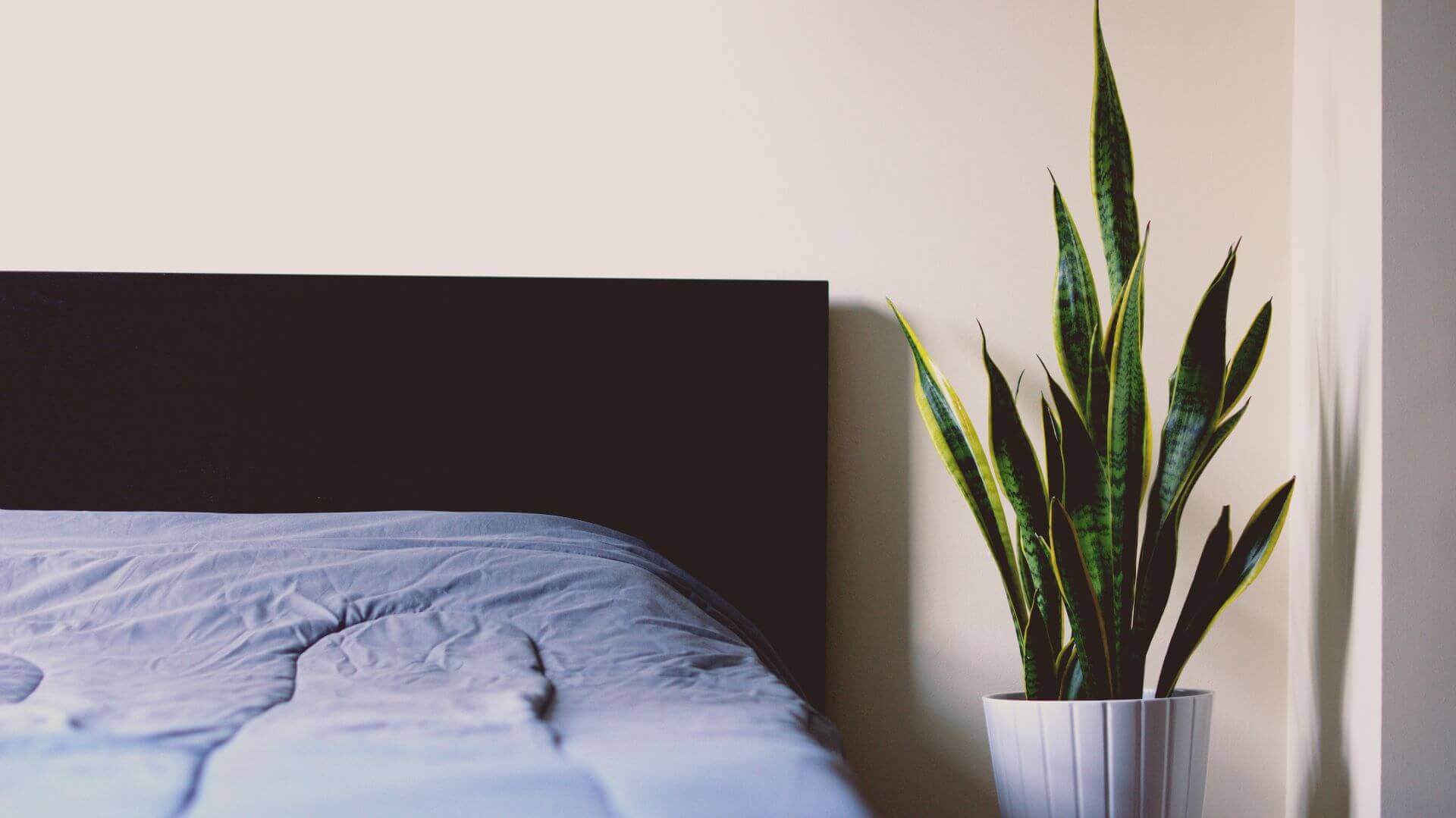
5 ways you can naturally improve your quality of sleep
Sleep is essential recuperation for our wellbeing. Ideally, we're supposed to get around seven hours of rest each night for a healthy lifestyle, but this isn't always the case.
Recently, the Great British Bedtime Report found that we're sleeping less than ever before, with around 12% of the population getting five hours or less. This is up from 7% in 2013, suggesting that the UK's snoozing habits are on an alarming decline.
It's easy to blame this pattern on so many things, but one thing is clear: many of us need to address the sleeping imbalance in our daily lives. And, one of the best ways to do this is to use some natural methods to aid your slumber. Let's take a look at five of the most effective methods.
Introduce nature to your bedroom
Many species of plant have been found to have fantastic sleep-boosting qualities that you should look to bring into your bedroom.
For example, one study found that jasmine has a sweet scent that can reduce anxiety, improve relaxation, and help us to drop off to sleep more easily. Another useful species is the snake plant, a natural air purifier that emits plenty of oxygen, which is important for a comfortable night's rest.
Plants can also aid in how you feel when you wake up. Aloe vera is used in many overnight skin treatments that allow you to wake up fresh and alert, and can even help with puffy eyes in those early hours. Here at Dormeo, we've captured the natural qualities of this plant in our Aloe Vera mattresses, which provides antibacterial and antiseptic protection.
Make your workout work for you

Physical exercise is closely tied to many aspects of our wellbeing, and sleep is no exception. If you're a parent, you may be familiar with the tactic of tiring out a small child if you want to get them to sleep earlier — well, the same can work on us adults, too.
However, according to some experts, you may want to shift any evening exercise to a morning slot instead. This is because it helps the body kick-start the brain and regulates the release of melatonin, the hormone that controls sleep, at the right time in the evening (ScienceNordic). If you still want to dedicate some time in the evening to exercise, try a more relaxing activity like yoga or meditation.
Use a bedtime routine to prepare for sleep
Our bodies love routine, and this applies to sleep as well. Start by going to sleep and waking up at the same time every day, even on the weekends. This way, your body clock will get into a groove that will make falling asleep much easier. In theory, you should begin to feel tired at just the right time each evening.
You can supplement this with mini-routines that add even more structure. For example, enjoying a relaxing bath or reading session before you go to bed can put your mind at ease, as well as telling your body it's almost time to wind down for the day.
Know how light and can affect your sleep

Both natural and artificial light can play a big part in our sleep cycles — for better and for worse.
Our use of gadgets with screens all the way up to bedtime has been blamed for the loss of many hours of sleep, and for good reason. Many studies — including this one from Harvard University —have found that the blue light emitted by these devices disrupts our inclination to fall asleep. By switching these off well in advance and enjoying a more relaxed, natural wind-down, you can improve your quality of rest.
Not all light is bad for sleep, though. We've already discussed the benefits of an early-morning workout for sleep, but heading outdoors rather than staying indoors can be extra beneficial. According to this study in the Sleep Health journal, it's thought that the extra exposure to morning sunlight can help to strengthen our circadian rhythms and promote a healthy sleep cycle.
If you don't want to work out outdoors, it can be worth spending ten minutes in the garden each morning rather than heading straight to the office — maybe try eating your breakfast outside if the weather is nice.
Keep an eye on your diet
Another important natural factor linked to good sleep is a healthy diet, so you may wish to keep an eye on what food and drink you're consuming through the day. The first substance that will probably spring to mind is caffeine, which is a stimulant that can keep you awake. It's present in a lot of soft and energy drinks, as well as coffee and tea, so be sure to avoid these before bed. Sugary drinks and food are also liable to keep your brain hyperactive in the run-up to bedtime, so be sure to cut these out in the evening, too.
You should also pay attention to what you eat, as some types of food can cause problems that can affect your quality of sleep. For example, spicy and acidic foods are known to bring on heartburn, which can cause enough discomfort to keep you awake, according to WebMD. Plus, lying down makes heartburn worse, so being in bed is probably the worst place you can be.
We hope you've found the advice in this post useful. If you're interested in improving the quality of your sleep with a new bed, mattress or bedding, don't hesitate to explore our ranges or get in touch. Keep an eye on this blog and advice centre for more sleeping tips.







Leave a Reply